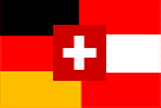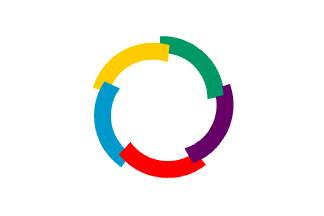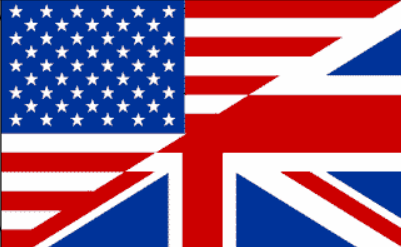- LIBERTY CAP
- See cap of liberty.
![[liberty cap example]](../images/v/vx-ar-y11.gif)
Flag of Jujuy, Argentina
- LIEUTENANT COLONEL’S COLOUR (or COLOR)
- See stand of colours 1) and venn.
![[Lieutenant Colonel’s Colours example]](../images/v/vx-gb^ltbyltc.gif)
![[Lieutenant Colonel’s Colours example]](../images/v/vxt-d2389b.gif)
![[Lieutenant Colonel’s Colours example]](../images/v/vxt-d2389c.gif)
![[Lieutenant Colonel’s Colours example]](../images/v/vxt-d2389d.gif)
![[Lieutenant Colonel’s Colours example]](../images/v/vxt-d2389e.gif)
Examples of Lieutenant Colonel’s Colours, English c1641 (Željko Heimer, CS and fotw)
- LIGATURE
- See monogram.
![[ligature example]](../images/v/vx-fr_prjcp.gif)
Presidential Flag of France (1894–1895)
- LIGHTFASTNESS
- See fastness.
- LINDWORM
- In heraldry see dragon and its following note.
![[linied example]](../images/v/vx-no-01-27.gif)
![[linied example]](../images/v/vx-no)01-27.gif)
Flag and Arms Skiptvet, Norway
- LINED
- 1) See edging 1).
- 2) A term sometimes (and incorrectly in heraldry) used to describe the detail lines around or within a
charge/figure – but see detailed,
outlined, garnished and
masoned (also charge 1).
- 3) In heraldry a term for the lining (either fur or fabric) of a mantle or pavilion – see
mantle and pavilion.
4) A heraldic term also used if a bear or greyhound has a line affixed to
its collar (see also gorged).
![[lined example]](../images/v/vx-gb$lmsr.gif)
![[lined example]](../images/v/vx-fr-35)s2.gif)
![[lined example]](../images/v/vx-rs_s1.gif)
Flag of the London, Midland and Scottish Railway c1935, UK;
Arms of St Malo 1615, France;
Flag of the Chairman of the National Assembly until 2011, Serbia
- LINE(S) OF PARTITION IN HERALDRY
- See divisions in heraldry.
-
![[lines of partition]](../images/v/vx-de-el-03.gif)
![[lines of partition]](../images/v/vx-ch-lu069.gif)
![[lines of partition]](../images/v/vx-ch-vs108.gif)
Flag of Nordhümmling, Germany;
Flag of Schenkon, Switzerland;
Flag of Salvan, Switzerland
- LINGUISTIC FLAGS
- 1) Flag-like images that are intended to link together communities which speak the same language
irrespective of national boundaries, and which are usually an amalgam of the national flags concerned
– an amalgam or amalgam language flag (see also
combined flag and
patchwork flag 1)).
- 2) Flags that are intended to represent a link through the use of a common natural language,
generally (but not invariably) countries previously held by colonial ties – such as that of the Francophonie.
- 3) Flags that are intended to represent one of the constructed languages, for example Esperanto.
- 4) Flag images, usually (but not invariably) those of national flags, which are used on the Internet
(and on other documentation) to indicate in which languages the material on a particular site are available
for the convenience of the reader.



Amalgam Language Flags for German (CS);
Flag of the Francophonie;
Amalgam Language Flag for English
Please note with regard to 1) that these images do not (as far as is known) exist in cloth.
- LITTEN
- A term sometimes used in heraldic blazoning to describe the windows and/or door of a
castle, tower or other building, particularly when these are shown in a different tincture
– but see ajouré with its following note
and the note below (also open and tinctures).
![[litten example]](../images/v/vx-pt-vis.gif)
![[litten example]](../images/v/vx-pt-mdr).gif)
![[litten example]](../images/v/vx-es-gi-pt.gif)
Flag of Viseu, Portugal;
Arms of Miranda do Douro, Portugal;
Flag of Palau-Sator, Spain
Please note that this term, whilst being an archaic alternative to "lighted" or "lit",
is not, as far as can be discovered, used in English heraldry.
- LIVERY BANNER
- The term, now obsolete, for a small square flag in the deceased person’s livery colours,
usually for use at that person’s funeral (see also
badge banner,
livery colours 1),
great banner,
grumphion and
bannerole).
![[livery banner example]](../images/v/vxt-d1113.gif)
Livery Banner of The Royal House of Tudor 16th c., England
- LIVERY COLOURS (or COLORS)
- 1) The principal colours (often – but not exclusively – the first metal and first
colour) of a coat of arms and generally (but not exclusively) shown as two or three stripes on flags
(see also armorial banner 2), banner 2),
coat of arms 2),
hanging flag,
rule of tincture,
state colours 3),
streamer 2)
and wreath 2)).
- 2) A term sometimes applied to the principal colours of a flag unrelated to a coat of arms –
but see
national colours 2) and
state colours 3).
![[Livery colour example]](../images/v/vx-pl-mp)an.gif)
![[Livery colour example]](../images/v/vx-pl-mp-an.gif)
![[Livery colour example]](../images/v/vx-cz-nb)bo.gif)
![[Livery colour example]](../images/v/vx-cz-nb-bo.gif)
![[Livery colour example]](../images/v/vx-de).gif)
![[Livery colour example]](../images/v/vx-de.gif)
Arms and Flag of Andrychów, Poland;
Arms and Flag of Bobnice, Czechia;
the State Arms and National Flag of Germany
Please note that the term is derived from the colours – usually
taken from a family’s arms – worn as a livery by the servants of that family.
![[liberty cap example]](../images/v/vx-ar-y11.gif)
![[Lieutenant Colonel’s Colours example]](../images/v/vx-gb^ltbyltc.gif)
![[Lieutenant Colonel’s Colours example]](../images/v/vxt-d2389b.gif)
![[Lieutenant Colonel’s Colours example]](../images/v/vxt-d2389c.gif)
![[Lieutenant Colonel’s Colours example]](../images/v/vxt-d2389d.gif)
![[Lieutenant Colonel’s Colours example]](../images/v/vxt-d2389e.gif)
![[ligature example]](../images/v/vx-fr_prjcp.gif)
![[linied example]](../images/v/vx-no-01-27.gif)
![[linied example]](../images/v/vx-no)01-27.gif)
![[lined example]](../images/v/vx-gb$lmsr.gif)
![[lined example]](../images/v/vx-fr-35)s2.gif)
![[lined example]](../images/v/vx-rs_s1.gif)
![[lines of partition]](../images/v/vx-de-el-03.gif)
![[lines of partition]](../images/v/vx-ch-lu069.gif)
![[lines of partition]](../images/v/vx-ch-vs108.gif)



![[litten example]](../images/v/vx-pt-vis.gif)
![[litten example]](../images/v/vx-pt-mdr).gif)
![[litten example]](../images/v/vx-es-gi-pt.gif)
![[Livery colour example]](../images/v/vx-pl-mp)an.gif)
![[Livery colour example]](../images/v/vx-pl-mp-an.gif)
![[Livery colour example]](../images/v/vx-cz-nb)bo.gif)
![[Livery colour example]](../images/v/vx-cz-nb-bo.gif)
![[Livery colour example]](../images/v/vx-de).gif)
![[Livery colour example]](../images/v/vx-de.gif)

![[livery banner example]](../images/v/vxt-d1113.gif)